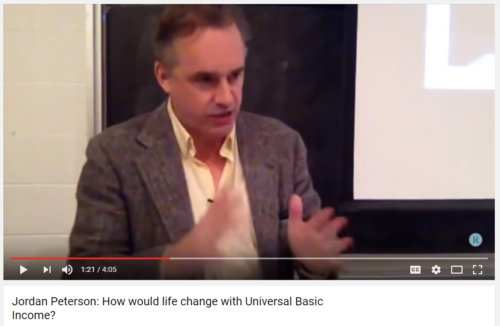
Many people have come to believe that the advent of a universal basic income is necessary to solve the social problems of the medium-term future. The received wisdom has it that increasing automation will soon make the majority of working-class professions obsolete, as they will be replaced with robots. This article looks at the social consequences of instituting a universal basic income.
Conservative interests are dead against the idea of UBI. The reason for this is the entirely reasonable belief that it will be expensive.
If one calculates the cost of a UBI in a country as small as New Zealand, with an adult population of just over 3 million, the cost becomes clear. Assuming that the current unemployment benefit is an amount of money that corresponds to the absolute minimum that a person could live on, 3 million multiplied by $250 per week equals three-quarters of a billion dollars every week.
3 million x $250 x 52 weeks = $39 billion dollars per year. This sounds like a tremendous amount of money – and it is – but according to the NZ Treasury, the cost of social welfare in New Zealand is already $29.8 billion every year. So our current welfare expenditure is already 75% of what it would be with a UBI.
What has to be borne in mind is that this money will not be wasted; indeed, virtually all of it will be funnelled straight back into the economy as it is spent on essential goods and services. Poor people don’t save money, as a general rule, because in order to save one needs a surplus and there is not likely to be a surplus on $250 per week. So the $250 they are given will be immediately put to use in lubricating the economy.
This is in stark contrast to the current system, in which almost the entirely of the operating budget of WINZ is completely wasted. The entire point of WINZ officers is essentially to decide which of their clients to deny an income to, and this role will be completely obsolete with a universal basic income – all of the money currently wasted on employing these gatekeepers will be saved.
The real effect of a UBI will come in the transformations it will make to the work force. Currently, a lot of jobs that are morally questionable or undesirable are done because the person needs to earn money. The threat of homelessness or starvation forces people to take jobs that might be soulless or immoral – and the people who control the money supply know this (and have always known it).
Journalists, for example, mostly produce absolute shit because of the desperate desire to sell advertising. A UBI would mean that instead of writing about sensationalised rubbish (or simply just making things up), journalists could go back to being the Fourth Estate.
Police officers find themselves tasked with enforcing laws that they know are immoral. A large proportion of the Police understand that it’s completely immoral for them to wage a War on Drugs against their own people, but there’s nothing they can do about it if they want to keep food on the table. A UBI would mean that prospective Police officers would be able to say no to enforcing immoral laws.
There are also a lot of people who work in advertising and finance who derive no satisfaction from their work because they know that it’s either completely meaningless or that it actually makes the world a worse place to live in for everyone, but these jobs pay. A UBI would provide an alternative for these soulless jobs.
There is also a belief that a UBI would make people ‘lazy’ and unwilling to work. This is a long way from the truth. In practice, a UBI would make it possible for people to refuse to work jobs with shit pay, shit conditions and shit bosses, which would force the labour market to improve working conditions. Improving these conditions would incentivise people to engage with the workforce.
One effect of this would be to make it much harder for abusive bosses to keep staff. In the New Zealand workplace of today, many employees find themselves having to put up with psychological abuse from their superiors because those superiors control the purse strings, and thereby control whether the employee gets to eat or not.
In summary, bringing in a UBI would sharply reduce the degree of coercive power that moneyed interests would have over people who were dependent on an income for food and shelter.

I guess it wouldn’t hurt to try a new system for the benefit of all instead of a few greedy individuals.